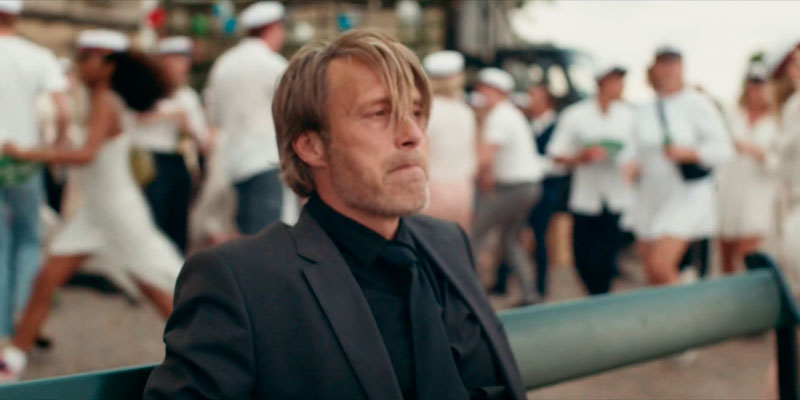Danish filmmaker Thomas Vinterberg's most recent film asks us to take seriously the pervasive consumption of alcohol and to see within it the potential for transcendent societal liberation and new forms of communal engagement.xxxxxxxxxxxxxxxxxxxxxxxxxxxxxxxxxxxxxxxxxxxxxxxxxxxxxxxxxxxxxxxxxxxxxxxxxxxxxxxxxxxxxxxxxxxxxxxxxxxxxxxxxxxxxxxxxxxxxxxxxxxxxxxxxxxxxxxxxxxxxxxxxxxxxxxxxxxxxxxxxxxxxxxxxxxxxxxxxxxxxxxxxxxxxxxxxxxxxxxxxxxxxxxxxxxxxxxxxxxxxxxxxxxxxxxxxxxxxxxxxxxxxxxxxxxxxxxxxxxxxxxxxxxxxxxxxxxxxxxxxxxxxxxxxxxxxxxxxxxx
Another Round/Druk is a reminder that there are still filmmakers who take their medium seriously and not primarily as a format for spectacle and entertainment. It also reminds one why film was regarded as so significant at the moment of its invention as a technology for the production of vast transformations in society. And while there are certainly films like these being made in the United States (e.g., the Coen brother's films), one needs, generally, to look to Europe to find a pervasive culture of filmmakers still trying to uncover unconventional ways in which film can be made useful as not only a format for conveying meaning, but also as a process and activity for organizing the exploration of profound sociological, political and philosophical questions. In many Scandinavian films, in particular, profound insight into the core of advanced liberal society and the pervasive issues arising from the hegemony of a liberal ideology that has been refined and honed over generations(rather than the exaggerated, militant experience of it in the United States) can be found1.
Liberal society can be a stultifying grind of alienated and alienating structure and microscopically refined and distributed responsibilities. On the one hand, one must shoulder the burden of their own position in life, to seek meaning and purpose in a world that demands increasing precision in one's choices, and, on the other hand, requires that one find peace and ways of still living with the choices of others around one who also share that same freedom and that must be engaged according to a rigorous code that respects and tolerates their individual liberty. These obligations have the effect, over time, of taking youthful ambition and energy and transforming it into middle-aged disillusionment. The unknown wonder of possibility to create an identity becomes the specificity and predictability of structural demands that the history of one's choices places on them--what seemed like a shared social struggle for individual liberation eventually comes to be perceived as the suffocating prison of alienated structure that one is obligated (morally, ethically, philosophically for consistency) to perpetuate.
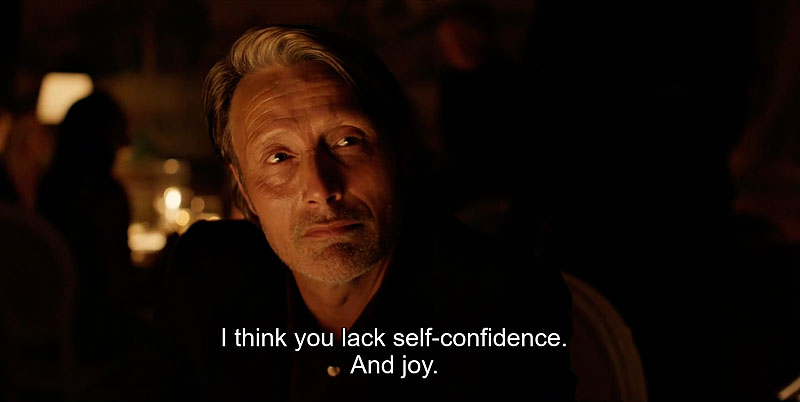
It's to this paralyzed, atrophied liberal core that Thomas Vinterberg's film is addressed. Specifically, it is about a group of middle-aged high-school teachers who decide, against a backdrop of creeping despair and ennui in their lives, and catalyzed by a night celebrating a colleague's birthday, to take a serious look at the redeeming potential for alcohol. Their intention is to move beyond seeing alcohol as either the stuff that permeates young reckless lives in their disregard for the not-yet-arrived responsibilities of adulthood, the pitfall laid out for the dispossessed and neutered to abuse in a spiraling cycle of abuse and addiction, or the casual corrosive of the affluent and deluded to sip through the evening. As such, these teachers proceed to make a research project out of the idea that man was born with a 0.05% BAC deficiency and that many of humanity's most significant social, cultural and political contributions have come from those who didn't drink recreationally, but drank to make their work possible.
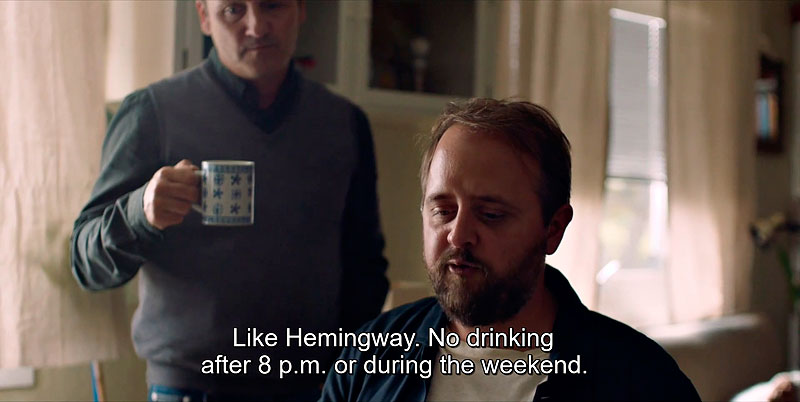
Essentially, the 'controlled experiment' the film documents asks the question: might the redemption of liberal society require the use of a chemical catalyst for transgressing all of the responsibilities of decorum, political correctness, rigidity of regulations that ensure fairness and equity, and the plain certitude of expectations of what's to come? Fundamentally, this would be an experiment that is at once opposed to a liberal philosophy that regulates in order to ensure fairness and freedom from humanity's basest instincts, while also simultaneously being an affirmation of its implicit potential that it provide a freedom for something rather than simply from everything.
In short, the film asks: can being drunk, or at the 'point where drunkenness and sobriety meet', be a catalyst for subtly transforming the prison of liberal constraint into an opportunity for reigniting its potential through the partial blindness and freedom from conscience and social inhibition that alcohol provides?
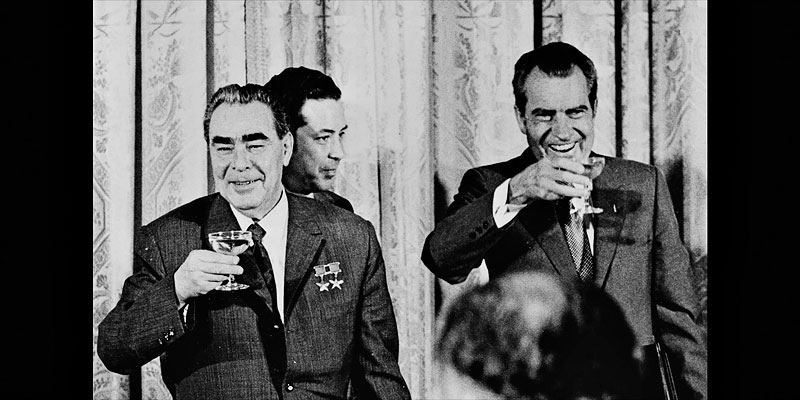
What the film reveals is that alcohol can support this effort. It gives one the confidence or recklessness to confront a class of students that refuse to look away from their phones and pay attention to their instructor. It gives the instructor common ground to engage students who's solidarity is based in experiences consuming alcohol. It gives the music instructor the freedom from rationality so that he can attune his students' senses to the subtle and profound communicability of music. It gives the soccer coach the willingness to push his students beyond their comfort zones and polite concepts of sportsmanship to achieve untapped potential. And in private life, a 0.05% maintained BAC has the effect of reinvigorating atrophied personal relationships through the reemergence of personality lost to the monotony of mundane repetition.
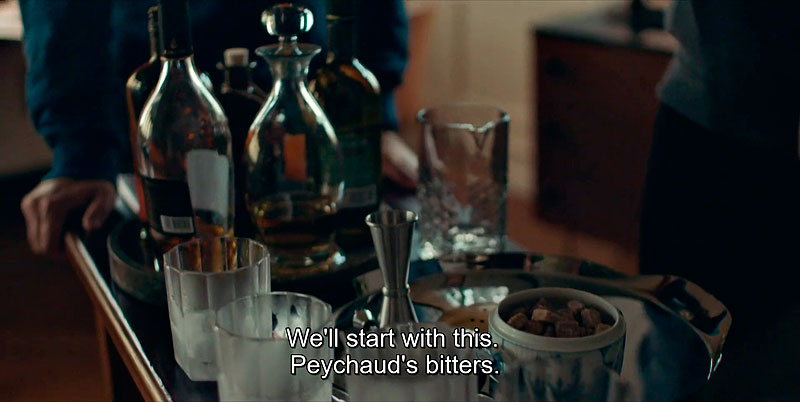
However, as the experiment moves beyond being buzzed at work to the concept of 'ignition' and an exploration of the potential for complete drunkeness in society as creative catalyst of genius, things come off the rails. Now, simple tasks like filling a grocery list result in falling over a stack of bottles; peeing on the baby rather than being peed on by the baby; and being unable to put a foot out of the taxi cab one must take to school. Drunkeness moves from the youthful catalyst for invention to become itself the socially stigmatized behavior indulging alcohol risks. Comically, no longer is drinking confined to work and during the day, but it bleeds into its ordinary recreational use as all-night bingeing, standing on table-tops, singing, dancing, stealing, walking down the middle of the street, coming home at all hours and shirking family and social responsibilities.
Alcohol becomes its addictive and destructive cliché, and what began as the superficial appearance of an elaborate delusion of expertise aimed at legitimizing the consumption of alcohol ends up being, profoundly, an elaborate delusion of expertise aimed at legitimizing the consumption of alcohol.
But it's precisely in the collapse of the experiment and the failure of alcohol to provide the transcendent salvation it had seemed it could provide that some poignant lessons arise. As one is forced to reckon with the aftermath of destruction their temporary insanity created(a broken family life, a lost friend, a ruined work-life), the possibility for a profound reflection on one's essential fallibility presents itself. It's never possible for one to foresee all of the potential outcomes of their behavior, just as its beyond one's control whether or not the life they've created for themselves will one day seem dull and meaningless. What does become clear, however, is that all one can ever do is to do all that one can do. And while that might seem at first glance like tautological meaninglessness, once one considers that all around them are people who find themselves in precisely the same situation, that insight becomes elevated to transcendent enlightenment and a praxis/guide-for-action for the rearticulation of a dead and dying liberalism according to the space of freedom the certainty of this shared experience provides.
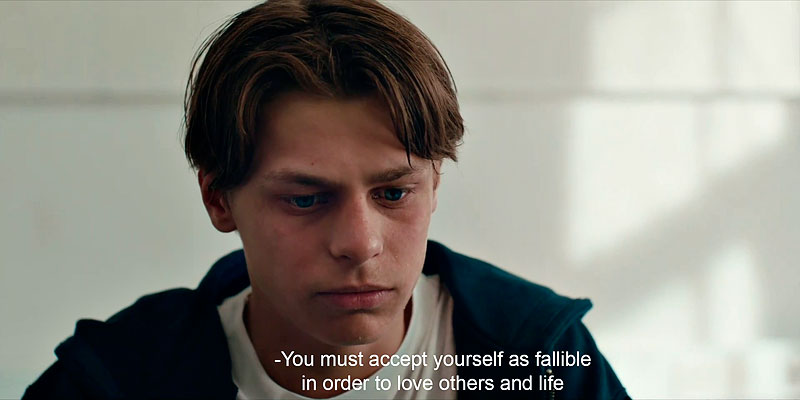
Alcohol in this film is at once serious solution and metaphorical foil. Its use is pervasive in Western liberal societies, and pervasive for precisely the reasons outlined in the film: as a way of escaping, as a way of provoking, and as a way of abandoning. And taking its redeeming potential seriously is itself a legitimate, and legitimately transgressive endeavor.
But alcohol is also the socially-stigmatized indulgence that serves as only a placeholder for all solidarity that require one to abandon their traditional responsibilities and loyalties in favor of something risky and unpredictable. So, while the film invites our laughter at the comedy of the absurdity of the experiment, it also asks that we think more broadly about its consumption and prospects for our personal redemption from the meaninglessness in liberal society.
The consumption of alcohol in (liberal) society describes a complex involvement in the world defined by elaborately rationalized relationships wed to temporary, provisional enjoyments based in forms of superficial conviviality that wall us off from others and ourselves in corrosive and inhibiting ways. And much like casual drinking to pass the time and find some temporary enjoyment while we wait, hoping for the machinery of our own intimate life's structure to recycle some joy or deepen our understanding, this film asks us to think more deeply about what we invest into the relationships around us (when we 'drink') and to consider what's to be gained by risking something more serious on them.
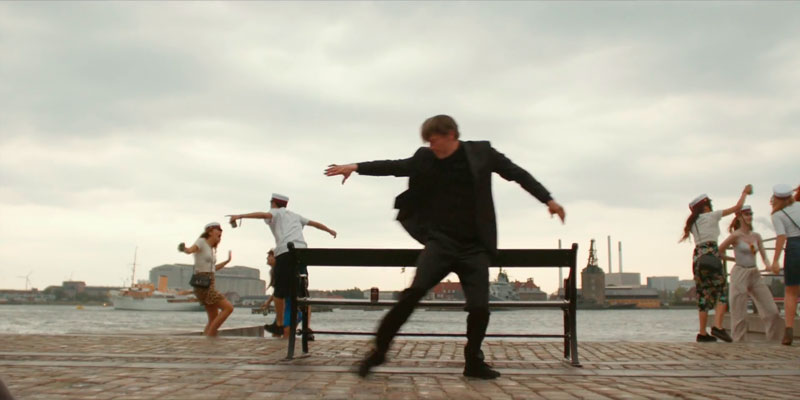
Footnotes
Interestingly, the American remake of Swedish film Force Majeure, Downhill with Will Farrel and Julia-Louis Dreyfus, exposes the way in which European liberalism and the seriousness with which micro-political issues deeply embedded within complex social-lives are construed as comical by a more aloof, pragmatic American approach and philosophy. ↩
See also Lars von Trier's films(Melancholia, Antichrist), Let the Right One In, Force Majeure for more insight on culturally specific European ways of grappling with the problems produced in complex, advanced liberal societies. ↩
